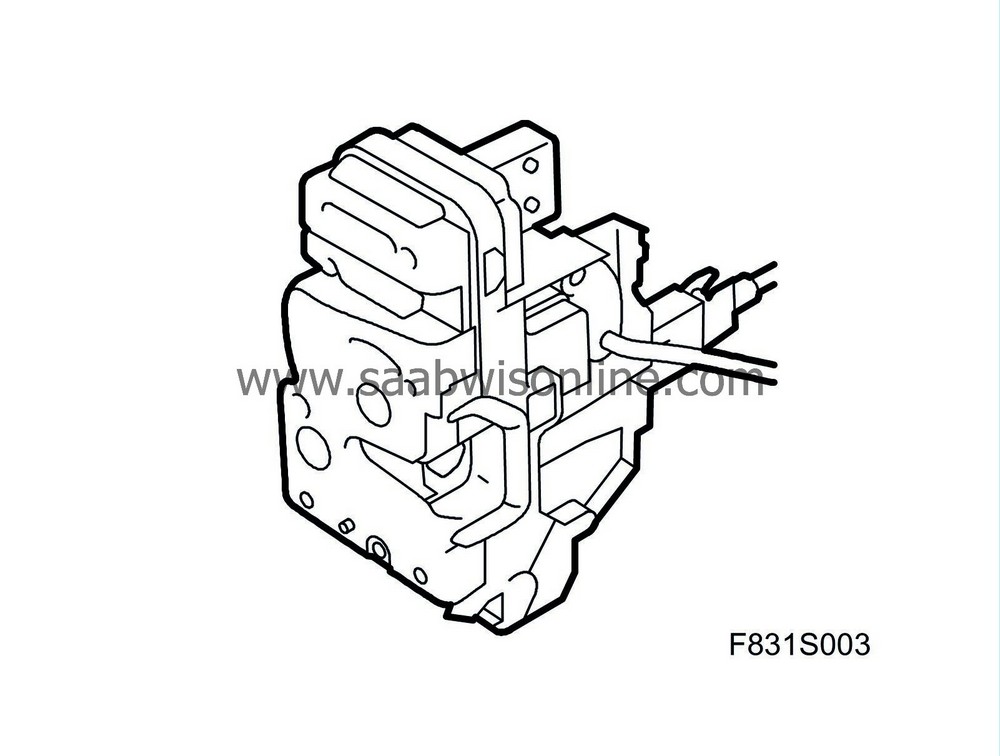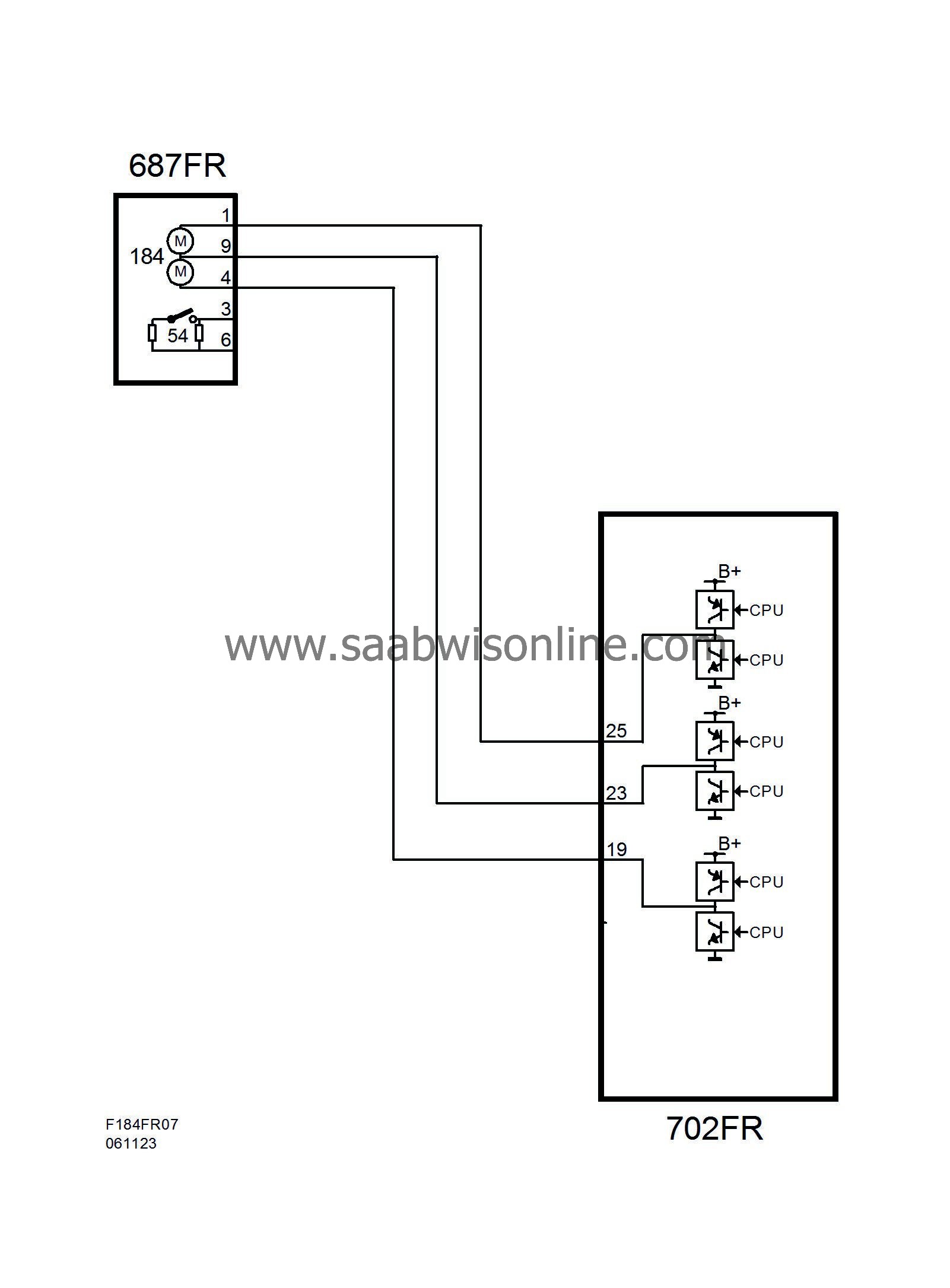Central locking system motor, door, front, right (184FR)
|
|
Central locking system motor, door, front, right (184FR)
|
Central locking system motor, door, front, right (184FR)
|
•
|
Lock and unlock the door.
|
|
•
|
TSL locks the door (Theft Security Locking) (not US/CA).
|
The central locking system motor, which is integrated in the door lock, has one electric motor version without TSL and two versions with TSL. The TSL motor has the task of controlling the ordinary lock motor in the locked position so that the door cannot be opened manually from the inside.
If for some reason the remote control does not work and the car is in the TSL active position the front left door can however be opened using the mechanical emergency key. The polarity of the two motors is reversed to run them in the reverse direction. A switch indicates the status of the door.

Electric motor
The motors are 2 pole and connected with their own separate wiring and common wiring to the door control module.
Switches
The switch has a ground and a signal lead connected to the door module. The door module feeds the switch with B+ via a resistor integrated in the control module. For the door the resistance is 100 kΩ. The control module input is digital. A voltage greater than 2V is interpreted as an open circuit, and lower than 2V as a closed circuit.
|
Note
|
|
All cables in the wiring harness to the motor are black in order to impede car theft. The lock motor's connector has a guard to impede removal via the window channel.
|
|
Pin
|
Signal type
|
Description
|
|
1
|
Ground
|
Common ground to the switches.
|
|
4
|
B+ with unlocking
Ground with locking
|
Lock motor common
|
|
6
|
B+ with TSL active
Ground with TSL unlocking
|
TSL lock motor
|
|
8
|
Ground via a resistance when the door is open
A further resistance is connected in parallel with the previous when the door is closed.
|
Door switch
|
|
9
|
B+ with locking
Ground with unlocking
|
Lock motor
|





